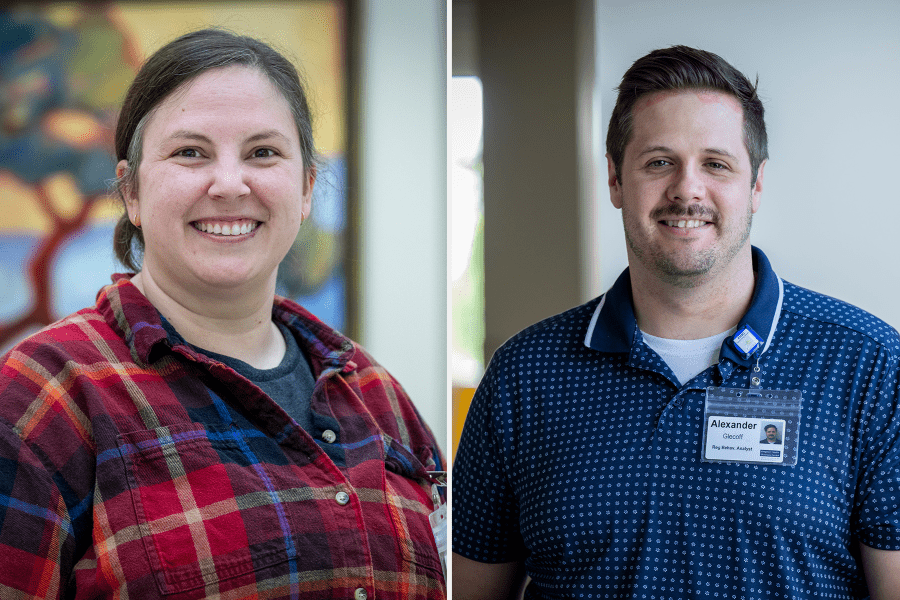Effective immediately masking is required for everyone when present on all inpatient units, in the Emergency Department (ED), the Urgent Care Centre (UCC), and the Children’s Outpatient Centre (COPC).

The Neonatal Intensive Care Unit (NICU) can be an overwhelming environment for parents. But a new research project taking place on the unit is aiming to ease the stress, by inviting mothers and fathers to be a much bigger part of their baby’s care team.
The project involves the introduction of a new Family Integrated Care model on the unit and Kingston General Hospital is just one of 19 hospitals taking part in the cross-Canada research.
“The goal of Family Integrated Care is to help parents feel more involved and present in their baby’s care while in the NICU,” says MaryAnn Ottenhof, Registered Nurse and study coordinator. “Under this model, nurses and other care team members begin to transfer some of the baby’s care needs to the parents as soon as possible.”
Prior to the launch of this new model, staff would typically start teaching parents how to care for their premature baby once the baby was stable and almost ready to go home. Now parents are brought into the process weeks earlier by nurses who quickly become the parent’s teachers, mentors and supporters. The nurses remain responsible for all of the baby’s medical and safety needs.
To be eligible to take part in the Family Integrated Care model, parents must be able to spend six to eight hours a day in the NICU and have an infant that is stable and less than 33 weeks gestational age. Once the parents agree to participate, they are encouraged to provide basic infant care, such as diapering, bathing, feeding and skin-to-skin contact. They will also be the first to speak to the assembled caregiving team about their baby each day during medical rounds. Each family is also responsible for filling in a daily journal, or chart, that tracks what their baby did that day, when feedings happened and the kinds of care the parent is learning to deliver.
“This novel approach to incorporating families into the daily care of premature babies in the NICU has shown very promising results in an earlier pilot study in another unit in Ontario. They include improved baby weight gain, an increase in breastfeeding rates and decreased parental stress,” says Neonatologist Dr. Kim Dow, who is leading the study at KGH.
So far, six families have enrolled in the program here and three have already gone home, reporting more confidence and less stress in the study's patient satisfaction survey they filled out.
“I think this program is excellent. I feel like I’m more a part of the medical team and that I have more ownership of my baby’s care,” says Linda Methot, whose son George is in the NICU and enrolled in the study. “I’m also the one who knows the most about my baby as I’m the constant person on his care team every day and I can share what I know with everyone.”
The introduction of this new model of care is part of KGH’s commitment to transform the patient experience and to bring to life Patient- and Family-Centred Care. So far, staff from different professions on the unit are all giving Family Integrated Care positive reviews.
“My personal feeling is the parents seem to really thrive in this environment and feel much more confident as they prepare to head home with their baby. The other thing I see happening is a closer nurse and parent relationship that is rewarding for both,” says Ottenhof. “Our hope is to continue on with the Family Integrated Care model once the research study is over, as it’s already proving its value.”
Gallery


Parents participating in the study are encouraged to provide basic infant care earlier than before, such as skin-to-skin contact, feedings and diaper changes.



